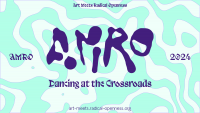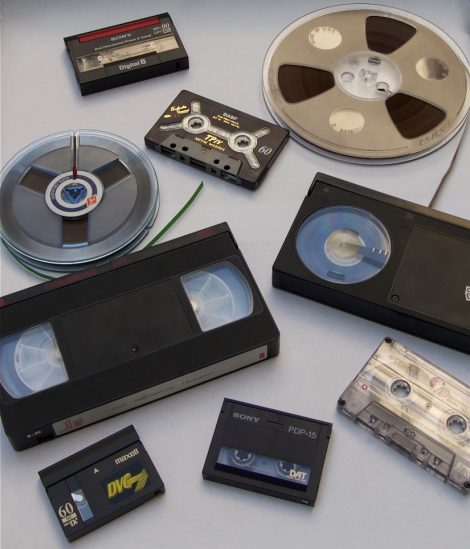 Today’s knowledge of the linguistic and cultural diversity of humanity is widely based on magnetic tape recordings produced over the past 60 years. Magnetic audio and video tape formats are now obsolete. Spare parts supply and service is fading, replay equipment in operable condition is disappearing rapidly, and routine transfer of magnetic tape documents is estimated to end around 2025. The only way to preserve these sounds and images in the long term, and to keep them accessible for future generations, is their digitisation and transfer to safe digital repositories.
Today’s knowledge of the linguistic and cultural diversity of humanity is widely based on magnetic tape recordings produced over the past 60 years. Magnetic audio and video tape formats are now obsolete. Spare parts supply and service is fading, replay equipment in operable condition is disappearing rapidly, and routine transfer of magnetic tape documents is estimated to end around 2025. The only way to preserve these sounds and images in the long term, and to keep them accessible for future generations, is their digitisation and transfer to safe digital repositories.
While many professional memory institutions have already secured their audiovisual holdings, or have planned to do so in time, a great part of audio and video recordings are still in their original state, kept in small academic or cultural institutions, or in private hands.
With the Magnetic Tape Alert Project, the Information for All Programme (IFAP) of UNESCO, in cooperation with IASA, the International Association of Sound and Audiovisual Archives, intends to alert stakeholders of the imminent threat of losing access to their audiovisual documents. Part of this is to conduct a survey of existing audiovisual documents on magnetic tape that are not yet digitally preserved. The survey focusses on unique recordings rather than copies.
The information obtained through the survey on collections at risk will serve as a basis for the planning of adequate solutions for the safeguarding of these irreplaceable original documents in the long-term.
Take the survey here: http://www.mtap.iasa-web.org/
Deadline 31 May 2020




 The rapid shuttering of museums due to COVID-19 has had serious consequences; museums, to stay connected with audiences when they can’t physically visit collections, found new and unusual ways to bring together their public. So they have entered in the houses of thousands people making available their cultural collections on-line.
The rapid shuttering of museums due to COVID-19 has had serious consequences; museums, to stay connected with audiences when they can’t physically visit collections, found new and unusual ways to bring together their public. So they have entered in the houses of thousands people making available their cultural collections on-line.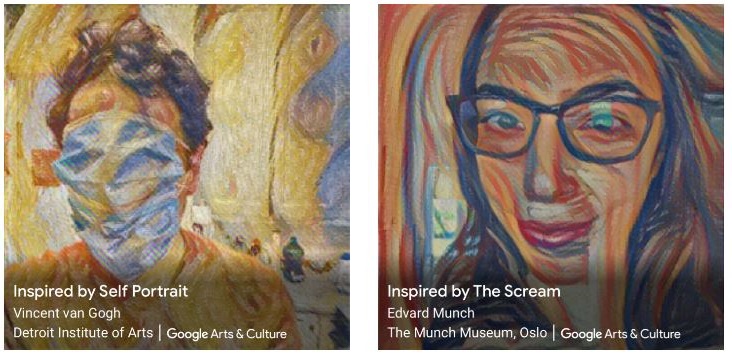

 The young project, started this May 2020, will complement the ESPON Targeted Analysis of 2019: “The Material Cultural Heritage as a Strategic Territorial Development Resource: Mapping Impacts Through a Set of Common European Socio-economic Indicators” (
The young project, started this May 2020, will complement the ESPON Targeted Analysis of 2019: “The Material Cultural Heritage as a Strategic Territorial Development Resource: Mapping Impacts Through a Set of Common European Socio-economic Indicators” ( The conference is organised under the patronage of Burgas Municipality and aims at presenting innovative results, research projects and applications in the field of digitisation, documentation, archiving, representation and preservation of global and national tangible and intangible cultural and scientific heritage. The main focus is to provide open access to digitised cultural heritage and to set up sustainable policies for its continuous digital preservation and conservation. Representatives of a number of public and specialised libraries, museums, galleries, archives, centres, both national and foreign research institutions and universities will be invited to participate and exchange experiences, ideas, knowledge and best practices of the field.
The conference is organised under the patronage of Burgas Municipality and aims at presenting innovative results, research projects and applications in the field of digitisation, documentation, archiving, representation and preservation of global and national tangible and intangible cultural and scientific heritage. The main focus is to provide open access to digitised cultural heritage and to set up sustainable policies for its continuous digital preservation and conservation. Representatives of a number of public and specialised libraries, museums, galleries, archives, centres, both national and foreign research institutions and universities will be invited to participate and exchange experiences, ideas, knowledge and best practices of the field.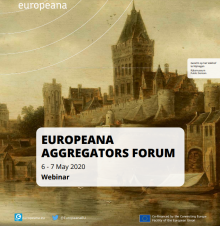
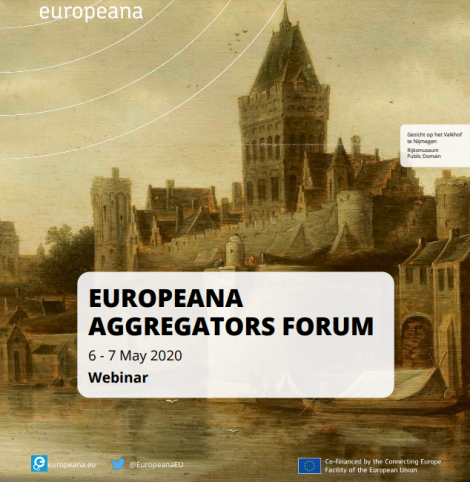 The Europeana Aggregators Forum is the gathering where twice a year the community of Europeana most trusted partners meets to review strategies and collaborations, and make plans for the future. All the aggregators work with cultural heritage institutions to gather authentic, trustworthy and robust cultural data and make it accessible through Europeana. Through the Europeana Aggregators Forum, aggregators work to exchange the knowledge and best practice that support the digital transformation of cultural heritage institutions.
The Europeana Aggregators Forum is the gathering where twice a year the community of Europeana most trusted partners meets to review strategies and collaborations, and make plans for the future. All the aggregators work with cultural heritage institutions to gather authentic, trustworthy and robust cultural data and make it accessible through Europeana. Through the Europeana Aggregators Forum, aggregators work to exchange the knowledge and best practice that support the digital transformation of cultural heritage institutions.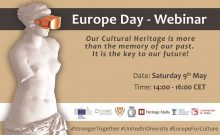
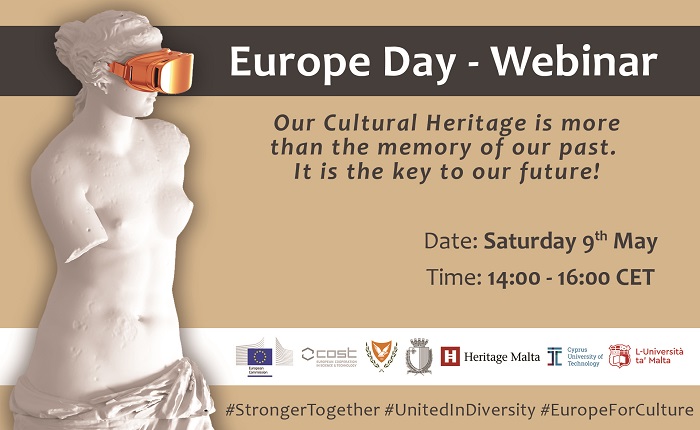 To commemorate this year’s
To commemorate this year’s 
 The Ars Electronica Center of Linz (Austria) offers to people a weekly programme for attending at performances, concerts, exhibitions from their homes, just connecting at
The Ars Electronica Center of Linz (Austria) offers to people a weekly programme for attending at performances, concerts, exhibitions from their homes, just connecting at 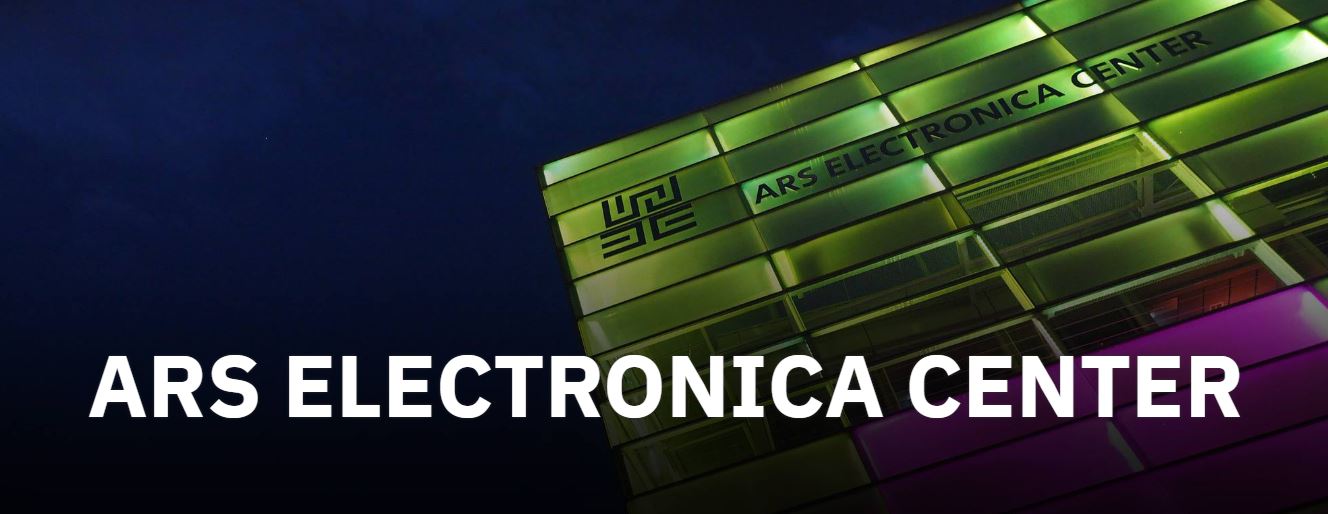 Challenge:
Challenge: If you have interesting news and events to point out in the field of digital cultural heritage, we are waiting for your contribution.
If you have interesting news and events to point out in the field of digital cultural heritage, we are waiting for your contribution.














